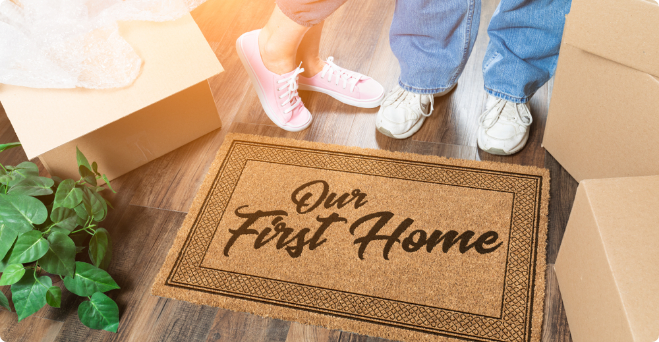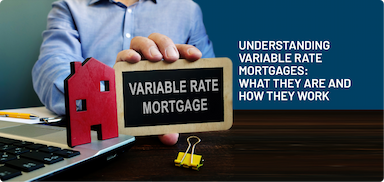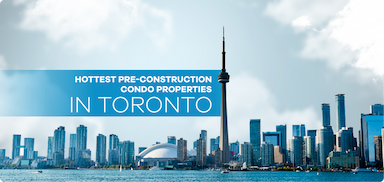Blog Search
How To Get a Mortgage With Bad Credit in Canada?

It is a well-known fact that to successfully acquire a mortgage a home buyer must have a minimum credit score of 660 in Canada (according to CMHC). So, does that mean anyone with a score below 660 does not stand a chance to get a home loan? The short answer is yes, you can absolutely get a mortgage even at a below-standard credit score. However, the longer answer is a bit more complicated as it depends on a number of factors which include-
The size of your down payment
Your debt-to-income ratio
Your employment history
The type of property you are buying
The lender you choose
Even so, the takeaway here remains the same " bad credit is not a barrier to your dream of home ownership" as long as you know your options, which is precisely what this blog is all about. So, let’s start with the basics.

The D-M-S of buying a home in Canada as a first-time home buyer
In order to grasp the process of obtaining a mortgage with bad credit, it is important to have a firm understanding of the fundamental elements involved in purchasing a home in Canada. By understanding how bad credit impacts each piece of the puzzle, you can better navigate the process of securing a mortgage.
01D stands for a Down Payment
As an aspiring first-time homeowner, a down payment is the first thing you need to work out and there are no shortcuts to do it. This is something that strictly depends on your ability to save and the cost of the property you want to buy.
As per the guidelines defined by the Office of the Superintendent of Financial Institutions (OSFI) for home,
If the house vale is under $500,000 you need a 5% down payment
Between $500,000 and $999,999, you’ll need a 5% down payment for the first $500,000 and 10% on the remaining amount.
Above $1,000,000, you’ll need a 20% down payment.
As a first-time home buyer what you need to keep in mind is that if you have bad credit, you may need an even larger down payment to cover the difference between what you can borrow and what you need to buy the home.
02M stands for Mortgage Approval
There is no subtle way to put this, so take it as it is. This is where the mortgage provider will put every aspect of your life under a microscope and try to determine what amount of risk they will be in for if they decide to lend to you. If we were to make a list of things, they will check, it would look something like this
Your total annual income
Your employment history
Your debt-to-income ratio
Your total annual household expenses
The size of the loan you are applying for
The type of property you are buying
Property value appreciation potential
The total value of your current assets
Of course, there are many more factors that lenders will consider, so if you have bad credit, it is important to be perfect in all other areas. This includes having a stable employment history, a low debt-to-income ratio, and a sizeable down payment.
03S stands for Stress Test
Financial institutions use a "stress test" to determine if you can afford a mortgage after you apply for one. The purpose of the stress test is to ensure that you would be able to keep up with the payments even if the interest rate on your loan were to increase. The stress test interest rate is typically 5.25% or two percentage points over the interest rate offered by your lender. If a lender quotes you 4.35% interest, for instance, they might evaluate your repayment capabilities based on 6.35% interest. This means that if you have bad credit and are applying for a mortgage, you must prove that you can afford the monthly payment.
Can you define what it means to have a bad credit score?
| Credit Score | Interpretation |
|---|---|
| 300-574 | Bad credit |
| 575-659 | Fair credit |
| 660-724 | Good credit |
| 725-759 | Very good credit |
| 760+ | Excellent credit |
As you can see above, in Canada, credit score ranges from 300 to a maximum of 900. Credit above 660 is widely considered a good credit score, while when it falls below 575 becomes a bad credit. Transunion and Equifax, the two major credit bureaus of Canada, are the ones who assign these numbers based on a variety of factors which includes total debt accounts and a number of timely payments, among other things.
If you don’t know what you credit score is, then make sure to click on this link to find out.

Securing a mortgage with bad credit
If you have been paying attention, then you must have realised by now that although credit score is an important factor in the mortgage approval process, it is far from the only one. At the end of all, a mortgage provider needs to confirm whether or not you will be able to repay the loan. So as long as you provide that assurance through any means, you will be good to go and there are 3 ways you can do just that.
01Go for a joint mortgage
This basically means that you partner up with someone who has a good credit score (meaning 660+) and then apply for the mortgage. This will result in you co-owning the house with the person of your choosing, and they will be equally responsible for making the repayments. It might not be an option for every type of applicant but is definitely one of the best and that’s why it is the first one we recommend.
02Check with private lenders in Canada
The stress test is the biggest problem for first-time home buyers with bad credit who want a mortgage. It is quite strict and exaggerated in its approach and has a very stringent filtering process. That is why private lenders are kind of the best option for aspiring home buyers with bad credit, as private lenders do not use a stress test. Although they have a much higher rate than banks and credit unions, the omission of a stress test makes it considerably easy to get approved. Getting a mortgage through a private lender can also be a way to rebuild your credit, making it possible to qualify for a mortgage with a major bank or credit union in the future.
03The bigger the down payment, the better
Saving for a larger down payment is a good option if you have bad credit and want to become a homeowner. This is especially true if you're looking for a smaller home in an area with lower housing costs. The down payment rules vary based on the home's purchase price, but saving for a larger down payment can lower the amount you need to borrow in a mortgage.
Applying for a mortgage with a less-than-ideal credit score, especially if you are an Ontario first- time home buyer, is far from easy, and can present a number of challenges and obstacles. You must remember that a good credit score is not only the backbone of mortgage approval but many other things that make our daily lives easier. So, the best course of action in a case of bad credit would be to simply fix it. Build your credit score by consolidating your debts, work on your spending habits and budgets so that you can improve your chances of getting approved for a mortgage with more favourable terms and interest rates. It is also the best time to do so as the Canadian real estate market will enter a sellers’ market in the coming months, and the current policy rate of 4.5% is holding steady.
Read More: It can soon be a Sellers’ Market
That being said, we at The Canadian Home, understand that there is a limit on how much we can change our circumstances, and sometimes people just don’t have the time to wait. So we recommend getting in touch with one of our real estate experts who can help you explore all your options, including alternative lenders and government programs like the first-time home buyer incentive program, that may be able to assist you in securing a mortgage despite having bad credit.
Blog Search
Popular Blogs
Popular Blogs
The trademarks MLS®, Multiple Listing Service® and the associated logos identify professional services rendered by REALTOR® members of CREA to effect the purchase, sale and lease of real estate as part of a cooperative selling system.

